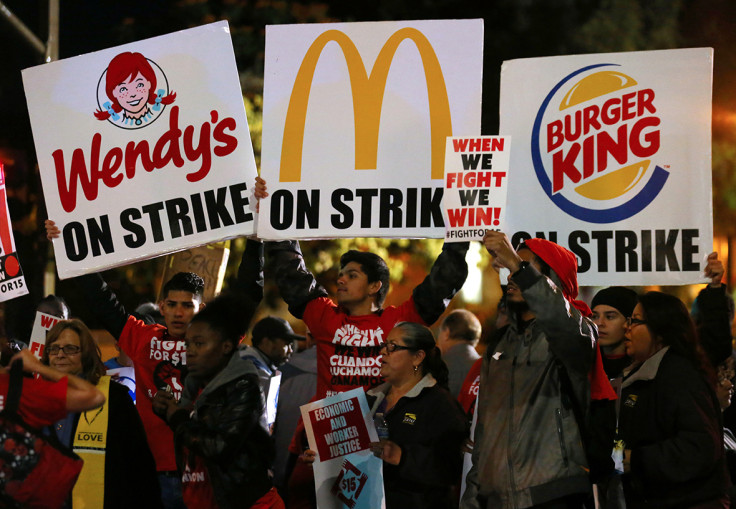More than 200 companies in the UK have failed to pay their workers minimum wage
The government have named over 200 companies that have breached the National Minimum Wage law. These employers include high-street brands, sole traders and small businesses.

202 businesses in the UK have been named by the government today, 21 June 2023, for failing to pay the minimum wage to their lowest-paid workers from 2013 to 2019. The 202 employers have breached the National Minimum Wage law, and their actions have left around 63,000 workers out of pocket.
The investigation by His Majesty's Revenue and Customs, into the companies revealed that the businesses have failed to pay their lowest-paid workers almost £5 million. The companies that have been named range from well-known high-street brands to small independent businesses. Some sole traders have also been named for breaching the National Minimum Wage law.
The businesses that have violated the National Minimum Wage law include WHSmith, Lloyds Pharmacy, Marks and Spencer, Chanel, Dune, Oxford United Football Club, Virgin Active and Twenty Four Seven Recruitment Services.
Kevin Hollinrake, the Minister for Enterprise, Markets and Small Business, said: "Paying the legal minimum wage is non-negotiable and all businesses, whatever their size, should know better than to short-change hard-working staff."
The named businesses have since paid back what they have taken from their staff and have also faced financial penalties.
"Most businesses do the right thing and look after their employees, but we're sending a clear message to the minority who ignore the law: pay your staff properly or you'll face the consequences," Kevin Hollinrake added.
The investigation found that 39 per cent of the 202 companies deducted pay from their employees' wages. Another 39 per cent of the businesses paid their workers for fewer hours, instead of for their correct working time. The remaining 21 per cent paid their apprenticeships at a lower rate.
These underpayments have been recorded as unintentional. However, these actions are a clear violation of one's human rights.
The UK government have declared that "there is no excuse for underpaying workers".
Did you know … todays #nameandshame list doesn’t show all of the arrears. #HMRC may offer an element of self correction to businesses- the self correction figures are not included in an enforcement notice and so do not attract a penalty or naming.#nmw #nationalminimumwage pic.twitter.com/ld6Ff1JoLd
— Minimum Wage Specialist (UK) - Jeni Morris (@NMWspecialist) June 21, 2023
Bryan Sanderson, the Chair of the Low Pay Commission, announced that: "The minimum wage acts as a guarantee to ensure all workers without exception receive a decent minimum standard of pay. Where employers break the law, they not only do a disservice to their staff but also undermine fair competition between businesses."
In response to the violations of the National Minimum Wage law, the government have published additional advice in regard to the breaches and steps that employers should take to ensure that their workers get paid the correct amount.
The Chair of the Low Pay Commission also called for regular naming rounds to be used as a tool in, "raising awareness of underpayment" and to help protect lower-paid workers.
The UK government is determined to provide lower-paid workers with their deserved wages and commemorates them for their hard work.
This year, 2023, the minimum wage in the UK increased by a record amount. In the April of 2023, low-paid workers saw their wages rise by almost 10 per cent (9.7%).
However, the National Living Wage outside of London currently stands at £10.42 an hour for adults over the age of 23. The Living Wage Foundation argue that, despite the increase of 9.7 per cent in April 2023, the National Living Wage is not enough – given the context of the current cost of living crisis.
The Living Wage Foundation has declared that the mandatory rate is "simply not enough to live on".
Frances O'Grady, the former General Secretary of the Trades Union Congress concluded that "millions of low-paid workers live wage packet to wage packet, struggling to get by – and they are now being pushed to the brink by eye-watering bills and soaring prices".
© Copyright IBTimes 2025. All rights reserved.






















